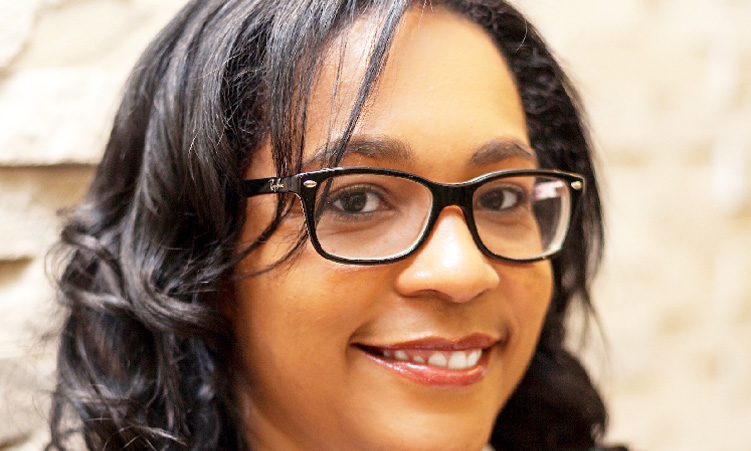… Parties dangle houses, land and fewer shacks in front of voters
Exactly 10 years after former president Hifikepunye Pohamba launched his mass housing project, political parties are still promising housing and land delivery ahead of Namibia’s November elections.
Pohamba’s project promised to build 180 000 housing units across the country.
To date most of these houses are yet to be occupied.
This time Swapo is promising 10 000 houses.
The Popular Democratic Movement (PDM) says it would enforce a ‘One Namibian, One Plot’ policy if elected to power.The Independent Patriots for Change (IPC) says it would reduce the number of shacks in the country by half, and the National Empowerment Fighting Corruption (NEFC) party says it would build houses for orphans and street children if it won the elections.
Affirmative Repositioning (AR) leader Job Amupanda says to address the country’s housing crisis, his party would make sure the National Housing Enterprise (NHE) fulfils its financing role.
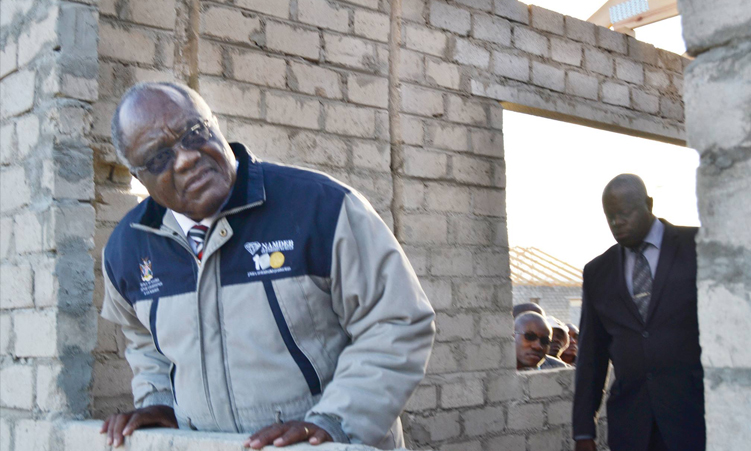
“We no longer have a building society. It’s just banks.That’s what would happen. Housing finance . . . the NHE would be properly orientated,” he says.
The AR says the state must build houses.
“To deal with the housing problem in Windhoek, you need to build at least 10 000 houses,” Amupanda says.
Republican Party (RP) secretary Mathias Mbundu says his party would protect the rights of generational farmworkers.
“. . . if they are evicted from their farms after retrenchment,” he says.
The party also wants Namibian-owned commercial and communal farms to be part of a feeding scheme for government institutions.
“All major tender bidders should allow a certain percentage of their profit to go towards a low-cost house for those who do not qualify to build a house,” Mbundu says.
Swapo’s presidential candidate, Netumbo Nandi-Ndaitwah, says the party would make plots available to build low- and medium-cost houses on.
She says Swapo would accelerate the availability of land in urban areas through subsidising local authorities.
“We will implement comprehensive and participatory upgrading programmes for informal settlements, focusing on servicing land to ensure security of tenure, and provide access to basic services such as water, sanitation and electricity,” she says.
Swapo also promises to strengthen the NHE’s existing affordable housing programmes and to streamline application processes, focusing on middle-income earners.
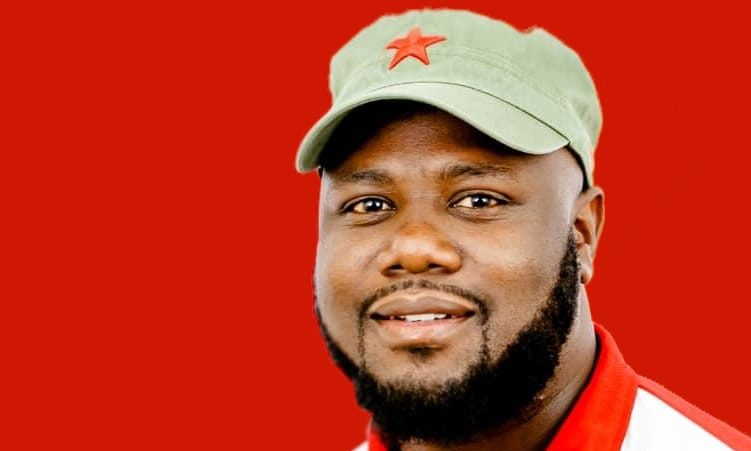
‘UNATTAINABLE’
Affirmative Repositioning (AR) activist George Kambala says these plans are brilliant but unattainable.
“The Swapo government with its bureaucracies does not have a plan to solve the housing plight,” he says.
It is yet another gimmick, he says.
“Geingob sold us a similar dream which could not be attained.”
Responding to Swapo’s promises, Landless People Movement (LPM) spokesperson Lifazala Simataa says the housing issue has persisted for decades.
“The Swapo administration and party leaders who made a bold claim to remove shacks . . . have failed dismally,” he says.
“Housing development should be spearheaded by local authorities, and the powers of the minister should be curbed to avoid delays and hold-ups,” he says.
Simataa says the LPM would regulate land and housing prices to ensure affordability if in power.
Rally for Democracy and Progress (RDP) leader Mike Kavekotora says his party would introduce an incremental housing plan.
“If someone earns, for example N$5 000, they get a full plan, but the construction will be half until they can afford to pay for the full housing unit,” he says.
NO COMPENSATION
South West Africa National Union (Swanu) says the party would expropriate land without compansation if elected to power.
“Independence without land is meaningless, thus, the government must aggressively acquire land, and the compensation should only be on improvements made to the land and nothing else,” the party says in its manifesto.
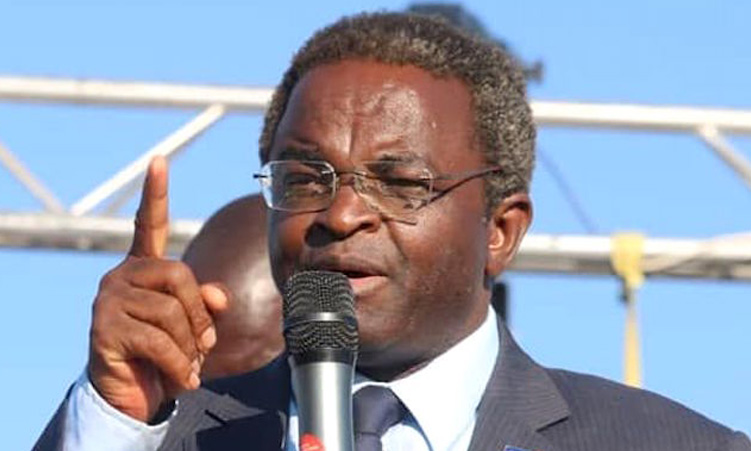
GETTING RID OF SHACKS
Independent Patriots for Change (IPC) leader Panduleni Itula promises to launch a national programme to formalise informal settlements.
He says Namibia has failed to deliver basic necessities to the majority of people.
“This is not because the country is poor, but because our allocation of public and national resources has been misplaced. In addition, the scourge of corruption exhausts public resources before they reach our people,” Itula says.
The IPC wants every Namibian child to grow up in a modern housing unit.
“The [need for] formal housing within the country increases by at least 100 000 units in 10 years,” he says.
Itula says the party would reduce the number of informal settlements by 50% within seven years.
Every family will have access to water, electricity, sanitation, healthcare and education if his party is elected to power, he says.
“We will remove the responsibility for land servicing from local authorities and introduce competitive bidding for bulk land servicing across Namibia.
“We will secure zero-cost arrangements with commercial banking institutions to administer a government-funded revolving small-loan scheme for subsidised serviced land purchases,” he says.
The IPC also promises to partner with financial institutions to administer low-cost housing loans with flexible repayment profiles.
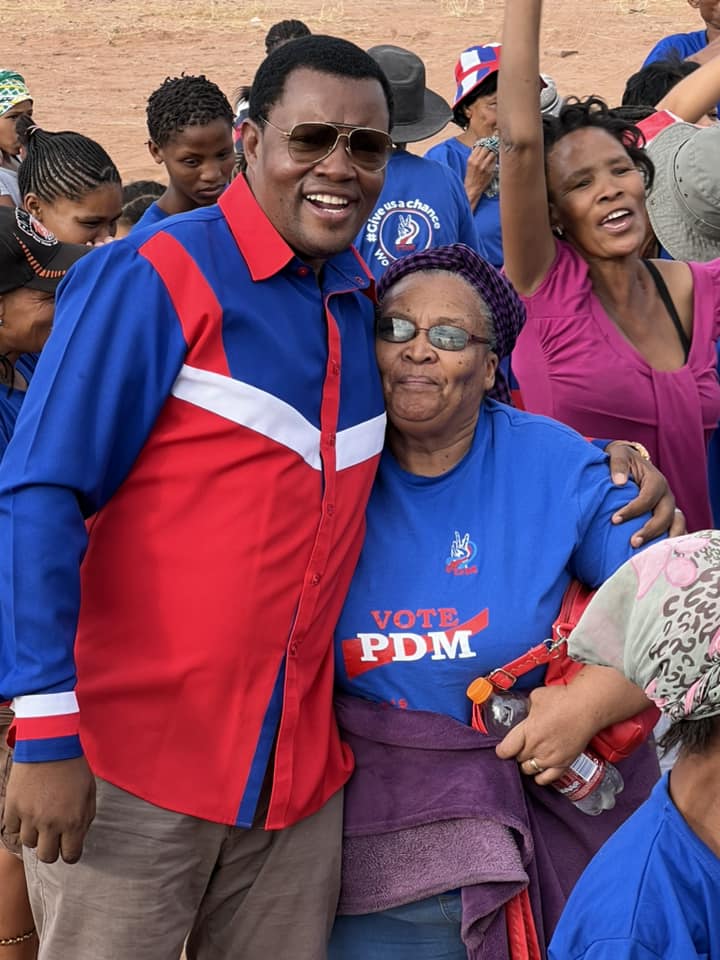
‘ONE MAN, ONE PLOT’
PDM leader McHenry Venaani plans to reduce the urban housing backlog to 30% by 2029.
“We will develop a mechanism that builds social housing units on a massive scale to ease the burden of rentals, and allow young professionals to access affordable housing,” he says.
Venaani says the PDM will provide the urban poor with free erven through the ‘One Namibian, One Plot’ policy.
“The policy will transform informal settlements into formalised areas of human settlement with developed land and a title deed given to the owner.”
National Empowerment Fighting Corruption (NEFC) deputy leader Matheus Stephanus says if elected to the government, his party would build orphanages for street children and orphans.
“The NEFC party government will provide support for all housing organisations helping the homeless,” he says.
Republican Party (RP) leader Henk Mudge says his party would make sure any tender involving natural resources shall include that a certain percentage of the bidder’s profit ends up in a housing project.
“This will be identified by the government, with essential services supplied by local authorities.”
‘SELLING DREAMS’
Katutura Residents Committee spokesperson Shaun Gariseb says manifestos are not connected to the realities of policy implementation.
“Formalising informal settlements is a tough task. I’d like to see more on what they plan on curbing informal urban growth in migration and from smaller to bigger towns. Some 62% (324 470) residents of the city’s population are born outside the Khomas region,” he says.
“If what they propose is feasible politically, especially under the current environment where IPC is blamed for failing the coalition even at the economically most important municipality, the City of Windhoek, and not participating in anything for five years, even at Walvis Bay and Okahandja, it’s the same,” he says.
The late Swapo president Hage Geingob has in the past said shacks “offend” him and he wanted them gone in five years.
Geingob said the living conditions of informal settlement residents should be declared a national humanitarian crisis.
Meanwhile, policy analyst Lazarus Kwedhi says the IPC’s housing plan for informal settlements is a positive gesture, but its political feasibility is uncertain.
“During the political elections campaign for the 2019 and 2020 elections, Itula, then an independent presidential candidate and IPC president, promised urban plot sales to the value of N$1 000,” he said.
Kwedhi says no political promise has seen the light of day after the previous elections.
“After winning local elections, the IPC did not implement its housing model and instead, blamed the central government for budget constraints and a lack of control,” he says.
Stay informed with The Namibian – your source for credible journalism. Get in-depth reporting and opinions for
only N$85 a month. Invest in journalism, invest in democracy –
Subscribe Now!





